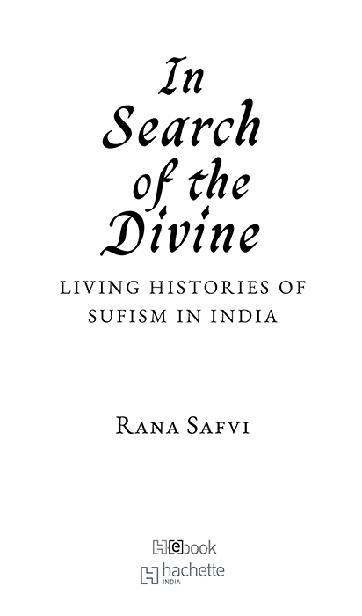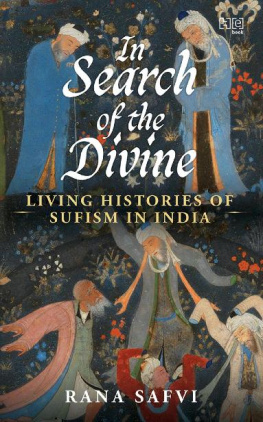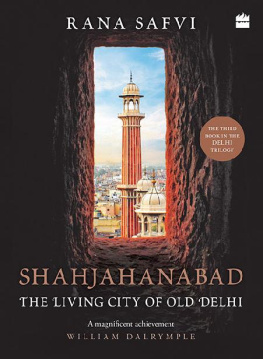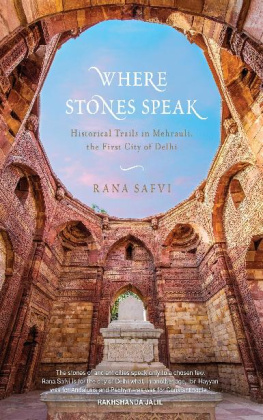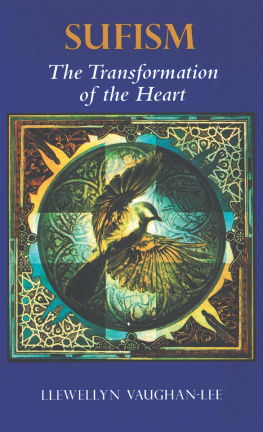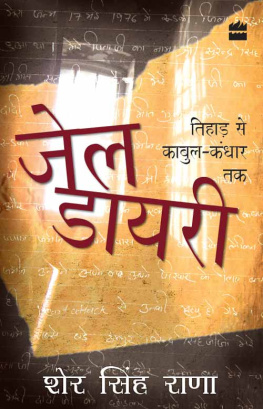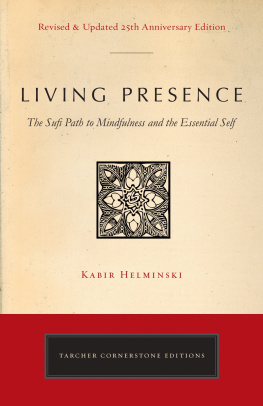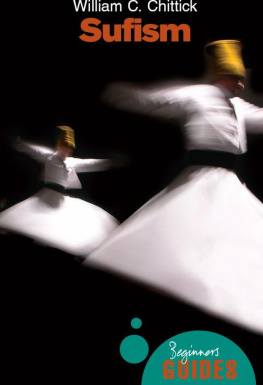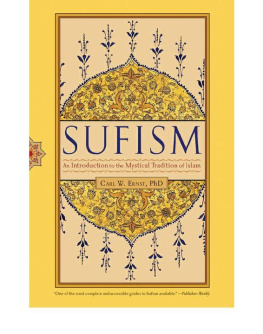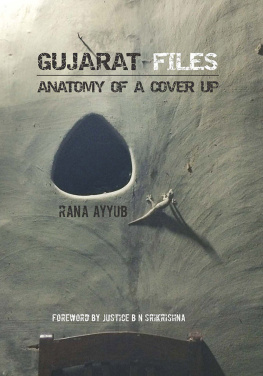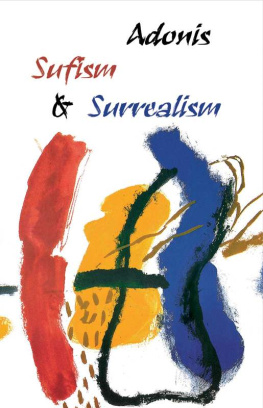First published in India in 2022 by Hachette India
(Registered name: Hachette Book Publishing India Pvt. Ltd)
An Hachette UK company
www.hachetteindia.com
This ebook published in 2022
(Text) Copyright 2022 Rana Safvi
Rana Safvi asserts the moral right to be identified as the author of this work.
Cover design by Meena Rajasekaran
Author photograph by Syed Mohammad Qasim
Cover image: Dance of Sufi Dervishes. Courtesy of Metropolitan Museum of Arts (Wikimedia commons)
All rights reserved. No part of the publication may be reproduced, stored in a retrieval system (including but not limited to computers, disks, external drives, electronic or digital devices, e-readers, websites), or transmitted in any form or by any means (including but not limited to cyclostyling, photocopying, docutech or other reprographic reproductions, mechanical, recording, electronic, digital versions) without the prior written permission of the publisher, nor be otherwise circulated in any form of binding or cover other than that in which it is published and without a similar condition being imposed on the subsequent purchaser.
The views and opinions expressed in this book are the authors own and the facts are as reported by her and have been verified to the extent possible. The publishers are not in any way liable for the same. Sources have been referenced and quotes acknowledged to the best of the authors ability. Any inadvertent omissions brought to our attention in writing will be remedied in future editions.
Subsequent edition/reprint specifications may be subject to change, including but not limited to cover or inside finishes, paper, text colour, and/or colour sections.
Paperback edition ISBN 978-93-93701-11-4
Ebook edition ISBN 978-93-93701-16-9
Hachette Book Publishing India Pvt. Ltd
4th/5th Floors, Corporate Centre,
Plot No. 94, Sector 44, Gurugram 122003, India
Originally typeset in EB Garamond 10.5/14
By InoSoft Systems, Noida
Dedicated to Hazrat Amir Khusrau, whose poetry introduced me to the meaning of Divine Love
Bismillah ar-Rahman i-Rahim
(In the name of God, the most Gracious and the most Merciful)
This book is the result of a lifelong practice of Islam, and a decade-old journey into its Sufi traditions. It is the outcome of a personal and academic search of peoples experiences of divinity in Sufi practices, focusing on its entire corpus of thought and discursive traditions, meditative and ritual practices, ethics of love and compassion, devotional poetry, music, art, and architecture.
Sufism is a vast ocean of mystical thought, doctrines, literature and poetry, and a legacy of its saints. The Arabic word tasawwuf means devoting oneself to the contemplation (of Allah) The ism in Sufism does not make it a system or philosophy. Instead, like tasawwuf , it is the act of following a mystical path, and a quest for ethical and moral perfection as one tries to realize Allah in ones self. It was always a part of Islam, though the term only gained currency around a century after the death of the Prophet (PBUH). It was at this time that an increasing number of Muslims came to feel that an entirely rational or intellectual relationship with what they considered Gods revelation was inadequate; it needed to be supplemented by an experiential relationship, especially the sources of that revelation and the shifting body of hadiths. This emphasis on experience over intellect was the ethical and psychological beginning of Sufism.
There has been a recent resurgence in popular interest in Sufism in India. Indeed, many Sufi orders ( silsilah s) are flourishing now. While not everyone can follow the intellectual and spiritual rigour that becoming a Sufi requires, thousands visit dargahs every day, seeking succour and peace, healing and care, love and compassion. I am one of them.
I have scratched just the surface of this great tradition, and my writing may reflect this, but the journey has enriched me as a person. Although I am not a Sufi, I am privileged for having got a small glimpse into the world of Sufism, and for being enriched by it.
While researching for this book, I conducted field visits to many dargahs across India, had conversations with devotees, descendants of the saints who run the shrines, and religious experts; and I have drawn from this experience. I focus on the changing character of the dargahs, and the crucial role saints play as waseela (intermediaries). The saints, who even after death continue to thrive in the shrine, are the link between the devotees and God.
Although traditionally India has been home to Sufism, of late a few detractors have appeared here too. And thats not all. The term Sufi is bandied about casually as a kind of cool cult that showcases the secular spirit of Islam; or worse, it is seen as something that is outside Islam. There is even a longstanding trend in the early studies of Sufism where it has been differentiated from Islam. This book is an attempt to show that Sufism is, in fact, firmly rooted in Islam. I try to do this by describing it in its historical context and as a rigorous meditative discipline, highlighting every aspect of the tradition.
In addition to these attempts to delink Sufism from Islam and portray it as a different stream of thought, we see it being attacked both within and outside Islam. It is often critiqued as shirk (attributing a co-partner to God) or bidat (innovation), or even an internal threat to Islam. To discredit Sufism, such critiques often emphasize superstition, grave worship, music, and the fleecing of credulous believers by some shrine attendants.
These attempts began in the eighteenth and nineteenth centuries when Orientalists, with access to only limited literature regarding the subject, wrote of Sufism as outside Islam on account of the latters essential characteristic of harsh legalism. Sufism, on the other hand, was considered to be indifferent to matters of religious law.
The inherent secular nature of dargahs is a tradition inherited from the Sufi saints themselves, and visitors of all faiths flock to these dargahs. Of late, in India, there has been a campaign to discourage these visits by portraying saints as violent men who forcibly converted the Hindu masses. I have seen a few of such WhatsApp messages being circulated.
Today, despite having limited or no meaningful engagement with the religion and fuelled merely by news coverage of fanatical factions and Islamist militia, many see Islam purely as regressive and fundamentalist. Muslims are made out to be fanatical, violent, and those who lack tolerance. For people who defame the religion, the beauty of the Prophets ihsan (doing all things beautiful) and akhlaq (exemplary character traits), his emphasis on beautiful deeds and conduct, and the jawan-mardi (chivalry) of Ali ibn Abi Talib are all alien to Islam. And according to them, the Sufi sheikhs service to humanity, and the universality and spirituality of poets like Mevlana Rumi steeped in the Sufi tradition, cant be a part of Islam.
